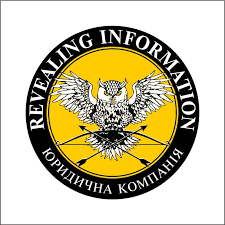
The relaxation of the rules for opening accounts by nonresidents reflects the immutability of the regulation relaxing policy and would positively influence the conditions for doing business in Ukraine, according to lawyers polled by Interfax-Ukraine.
Commenting on the update of the rules of opening and closing accounts of banks’ resident and nonresident clients and correspondent accounts of banks by the National Bank of Ukraine (NBU), which entered into force on April 4, Gabriel Aslanian, counsel to the Asters law firm, said that another important effect of innovation is a “positive signal to foreign companies that the situation in the country is improving, since there is no longer any need to maintain tight restrictions on operations.”
However, the lawyer believes that the inability to open accounts in Ukraine was not a clear obstacle to the work of foreign companies in the country.
“If a foreign company had an intention to operate in Ukraine, it could always establish or acquire a subsidiary here, open a representative office with the right to open current accounts,” he said, adding that, at the same time, the current restriction on opening accounts was quite noticeable for foreign lenders.
Aslanian said that after the lifting of the restriction on opening accounts, a foreign creditor “gets the opportunity, not on paper, but in reality, of selling his pledges in respect of hryvnia payments to residents’ accounts or on proceeds from hryvnia contracts between residents of Ukraine.”
In addition, it is important for the lender to directly, as a beneficiary, receive insurance indemnity from the Ukrainian insurer in case of loss of the funded project.
In turn, Kateryna Tkachenko, a lawyer at the K.A.C. Group international law firm, said that, thanks to the innovations, when changing the name of a legal entity, you will not need to close existing accounts. The presentation of bank cards with specimen signatures is also canceled when customers of banks open accounts, the accounts will be managed only by persons who, according to the legislation, have the right to do so.
In turn, managing partner of the RI-Group law firm, Alexander Keer, said that the introduction of the new rules by the NBU is “a significant step towards currency liberalization in Ukraine.”
“The macroeconomic effect of this decision is likely to be the improvement of investment climate and the attraction of investments in Ukraine. According to the document, foreigners have the opportunity of both opening accounts in our banks and making payments in the national currency, which significantly speeds up the movement of funds, simplifies doing business in our territory,” he said.
According to the new rules, foreign companies will be able to open accounts in Ukrainian banks, make settlements (invest) in the hryvnia, which will greatly simplify and accelerate the movement of funds and business in Ukraine in general.
At the same time, according to Keer, the new rules from the NBU “will not lead to an immediate increase in foreign investment in our country, because we all are now hostages of a long electoral cycle (presidential and parliamentary elections of 2019), but for foreign business already operating here this step by the National Bank is a really positive moment and a focus on qualitative changes in the country.”

The National Bank of Ukraine (NBU) has relaxed the rules of buying foreign currency by nonresidents to return foreign investment abroad after transactions with government domestic loan bonds, the central bank has reported on its website. The respective initiative was approved by resolution No. 100 of the central bank’s board amending certain legal acts of the NBU dated September 18, 2018. The document came into force on September 20, with the exception of certain clauses, which will become effective on November 1, 2018. “Nonresidents for the purchase of foreign currency after operations with government bonds will need to submit the short list of documents as possible,” the NBU said in the report.
In particular, the resolution specifies the rules of settlements under operations with government domestic loan bonds, where a nonresident is a party: transactions with banks and nonresidents can be carried out without restrictions, operations with other counterparties can be carried out only on the stock exchange with settlements using the “delivery of securities against payment” principle.
In addition, the rules of servicing the operations on the government domestic loan bonds placement among the clients of primary dealers (broker contracts) are defined, which provides access to the primary government domestic loan bonds market for private investors.
The mechanism for servicing refinancing operations with a pool of assets as collateral has also been regulated. The procedure for conducting blocking operations for government domestic loan bonds under these transactions has been determined, and the NBU is given the opportunity to take into account the securities of banks that are deposited as collateral in favor of the central bank.

The National Bank of Ukraine (NBU) has drawn up recommendations for submission of document with the purpose of agreeing on conditions and the rules of operation of an international payment system, the payment organization of which is nonresident, in the country, the central bank has reported on its website.
“This document is intended to support partnership relations with payment market players and simplify the process of preparing documents that, in accordance with the law, are sent to the National Bank of Ukraine for registration of an international nonresident payment system,” the NBU said.
The recommendations include the procedure for issuing and submitting documents to the NBU, a description of the provisions that should contain the documents, as well as a list of Ukrainian legislative acts and documents of international organizations that should be used to submit documents to agree on the terms and conditions of the international payment system.
Payment organizations of international payment systems have the right to carry out activities in Ukraine only after their registration by entering information about them into the register of payment systems, settlement systems, participants in these systems and payment infrastructure service operators, which is kept by the NBU.
The NBU enters information into the register on the international payment system, the payment organization of which is a nonresident, after agreeing the conditions and the order of the activity of this payment system in Ukraine.
Currently, the register contains information on 10 international nonresident payment systems, of which three are international card payment systems and seven are international money transfer systems.